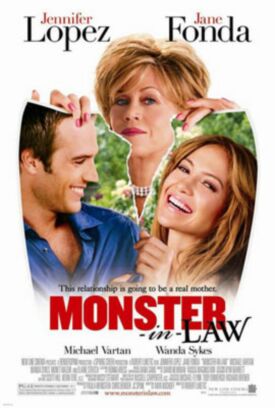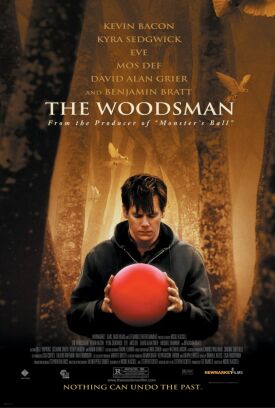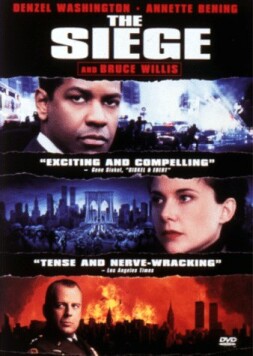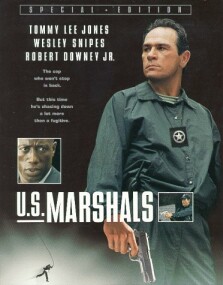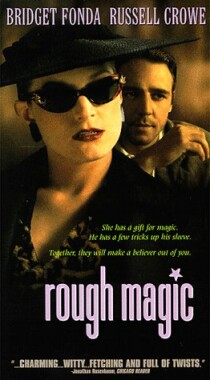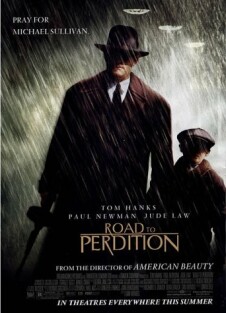Monster-in-Law
There are only a few points in Monster-in-Law, directed by Robert Luketic, where there are brief reminders of the one-time political prominence of Jane Fonda, its most venerable if not its most eminent star. I don’t believe they can be intentional. In one, Miss Fonda’s character, a TV talk-show host named Viola Fields, mentions the name of Henry Kissinger as being among the galaxy of stars whom she has interviewed on her show. As Viola is so addicted to name-dropping that you might be forgiven for supposing her to be a pathetic wannabe instead of the super-power of TV and celebrity she is meant to be, the name of Kissinger probably had no special significance to the film-makers. Those of us with long memories, however, might find our suspension of disbelief suddenly beginning to sag a bit at this point, assuming it ever got off the ground in the first place. True, most of the young audience for which the picture is intended will hardly know who Henry Kissinger is. But for the rest of us, imagining a bland, chat-show sort of conversation between the architect of Richard Nixon’s Vietnam policy and Hanoi Jane is an exercise in surrealism quite out of keeping with the overall tone of the film
Nor will it probably mean anything much to teenagers when Viola — whom you will have guessed before the lights go down is the monster/mother-in-law of the title — attempts to frighten her prospective daughter-in-law, played by Jennifer Lopez, by appearing before her in an outlandish get-up that includes a Chinese silk gown given to her, she says, by Chairman Mao. Chairman Mao is of course now just a pop-cultural icon, almost as glamorous as Che Guevara, and not the dictator and tyrant whose brutality and hare-brained policies killed many millions of his fellow-countrymen and whose alliance with the North Vietnamese dictator, Ho Chi Minh, contributed to the deaths of thousands of American servicemen. A talk show interview between him and Miss Fonda is much more plausible, though not a particularly savory idea.
With so much depending on its young audience’s absence of historical memory, then, it seems odd to say the least of it that our first introduction to Viola comes when she goes berserk on her TV show after asking a Britney Spears-like pop tart what is the significance to her of Roe v. Wade and getting the answer: “Oh, I don’t support boxing as a sport.” You’d think this is the last film in the world to sneer at vacuous youth who have no idea what was going on in the early 1970s. Without them, the movie would have no other audience than aging radicals and hippies like Miss Fonda herself.
It may seem unfair of me to single out these whoopsies as noteworthy blots upon the comeback attempt of a fine actress who has been out of movies since before she married Ted Turner in 1992. But I mention them partly as mitigating circumstances. For Monster-in-Law is so breathtakingly bad as a movie that it is kinder to speak of Miss Fonda’s youthful misjudgments of 30-odd years ago than it is of the colossal boner of her maturity in agreeing to appear in it. Not that she looks bad. On the contrary, for a woman of 67 she could hardly look better. But her youthful appearance seems an appropriate complement to her youthful foolishness in agreeing to portray a domineering celebrity mother driven half-mad by jealousy of Miss Lopez, who plays the fiancée of her son (Michael Vartan).
Of course it is not all her fault. The worst thing about the movie is the script, by Anya Kochoff, and particularly the pathetic attempts at wit in the banter between Viola and her black assistant and sidekick, Ruby (Wanda Sykes). Here’s a sample. Viola wails to Ruby: “My son, the brilliant surgeon is going to marry a temp!”
Ruby then replies: “He’s a man. That’s the problem. They only think straight when they have an erection, and it’s usually pointed at the crappiest woman.”
They only think straight when they have an erection? Surely she means the opposite? And you’ve got to wonder if she quite understands the physiology of the phenomenon she describes if she has no better idea than this of what direction it “points” in. But bawdy dialogue is an end in itself in a movie like this and probably isn’t supposed to make sense. When Viola orders an investigation of her prospective daughter-in-law’s past, Ruby reports back that “She has had fewer lovers in her whole life than you had on the last day of Woodstock.” Ha Ha. I guess. But could even Jane Fonda be quite happy with such an abysmal joke at her own expense?
Fortunately for her, no one is going to try to puzzle out what if anything she was doing, and whom she was doing it with, at Woodstock. This badinage is just a way of branding Ruby as the wise but earthy sidekick that bad movies tend to make of black women. Equally clichéd is the gay best friend (Adam Scott) of Miss Lopez. Her performance, by the way, vies with the dialogue for the title of most unbearably awful thing in the movie. The gay best friend ought to be giving her acting lessons rather than fashion and romantic advice. I find it hard to forgive and impossible to forget Miss Fonda’s abundant provision of aid and comfort to the enemy during the Vietnam War, but I can have compassion even for her for landing herself in so dreadful, so unfunny and uninteresting a movie as Monster-in-Law.
Discover more from James Bowman
Subscribe to get the latest posts to your email.

